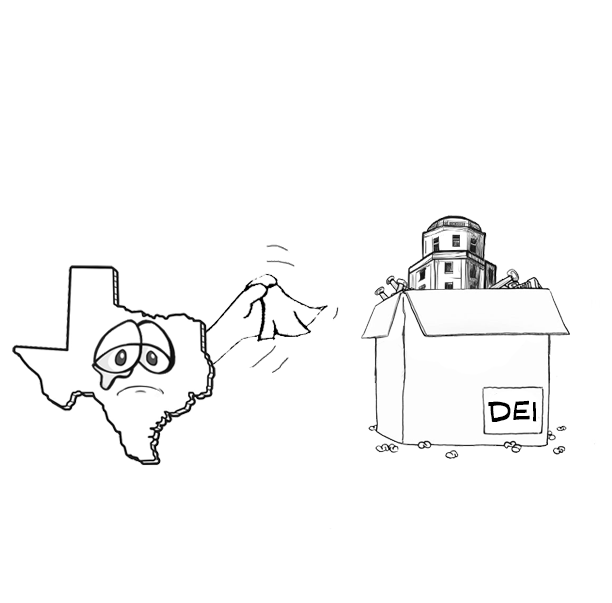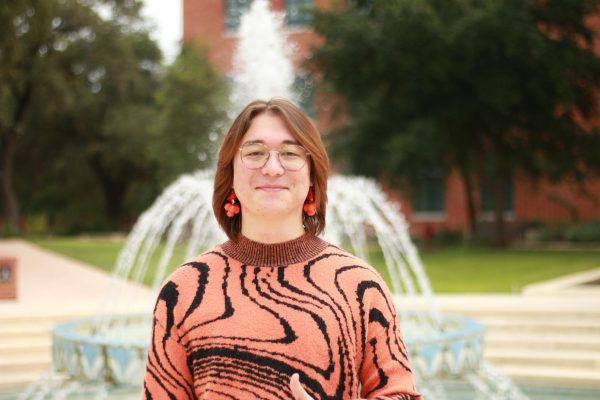On June 14, Gov. Greg Abbott signed a bill that aims at taking down Diversity, Equity and Inclusion (DEI) practices and offices at public universities, prohibiting them starting in 2024. The bill also bans any hiring preferences based on DEI-related statements from candidates at universities. While the bill goes into full effect on the first day of 2024, the University of Houston and other institutions have already dismantled their DEI offices and LGBTQ+ resource centers.
Authored by Senator Brandon Creighton, the bill featured prominent pushback from the Democratic minority before passing through both houses. Despite this, the idea of supporting merit-focused practices in education acted as the impetus for the legislation.
“With this bold, forward-thinking legislation to eliminate DEI programs, Texas is leading the nation and ensuring our campuses return to focusing on the strength of diversity and promoting a merit-based approach where individuals are judged on their qualifications, skills and contributions,” Creighton said in a press release.
While the legislation will have sweeping impacts, private universities like Trinity can continue to maintain their practice of keeping DEI offices open. This means that the Student Diversity and Inclusion Office (SDIO) on campus can continue to work to improve Trinity on various levels. Featuring a mix of full-time faculty and student workers, the office aims to supply resources for individuals who come from traditionally underrepresented backgrounds. As a student advocate within SDIO, Nicole Covarrubias, senior political science major, expressed concern regarding the recent Texas legislation.
“I [feel] upset and sad for the students at these public institutions,” Covarrubias wrote in an email. “[This legislation] takes away educational programming that would benefit students who do not know how to be allies to their fellow students or who are missing tools that will help them become more supportive and understanding of those whom they do not share an identity with. A lot is being lost with the ban on DEI offices.”
While this legislation bans any DEI-related curriculum or considerations within leadership and administration, it does not impact registered student organizations. This leaves organizations that are closely related to official school administration in a grey area.
On a private school level, each university can continue to maintain their offices and distribution of DEI resources. At Trinity, they offer a unique perspective through their fraternity and sorority life. Discussions on diversity are facilitated through each organization’s dedicated DEI chair. Sophie Radi, senior neuroscience major, acts as the DEI chair of Sigma Theta Tau. Both in this position and other experiences at the university, Radi is appreciative of conversations surrounding DEI at Trinity.
“What I like about DEI at Trinity is we really focus on coming into every discussion with kind of a blank slate and putting our egos at the door and understanding that we might not know everything there is to know about each other and about diversity, equity and inclusion,” Radi said.
Alongside the resources of fraternity and sorority life and SDIO, there are organizations such as Trinity Diversity Connection (TDC) that work to promote diversity throughout the university. Whereas other public universities may not be able to have resources like these in the future, Trinity continues to facilitate programming through these organizations.
Being able to maintain the current on-campus resources at Trinity is now much more than what public universities may offer, but with all of this, there is still room for improvement. Amrita Dhall, junior neuroscience major, serves as DEI co-chair for Alpha Chi Lambda and a part of TDC. Through her experiences, she has been able to note where the university is currently lacking.
“I think that SDIO and TDC do a good job at providing a safe space for people that value DEI, but I do think it’s important to acknowledge that Trinity is a PWI [predominantly white institution],” Dhall said. “I think a lot of the time they try to use minorities as model statistics … it’s very performative, and I think TDC and SDIO do a good job of trying to mitigate that, but I don’t think Trinity as a whole does.”
While public institutions around the state have their DEI offerings inhibited by legislation, Trinity can continue to let their programs improve the campus community. Still, the DEI practices are only as good as the discussions and actions they cultivate throughout the campus.
“As of right now, I honestly only hear about DEI with student leadership training and Greek life,” Radi said. “But I think discussions need to be brought up more in classes because DEI is important in any topic of learning, and as a liberal arts school, I think we should incorporate it more.”









